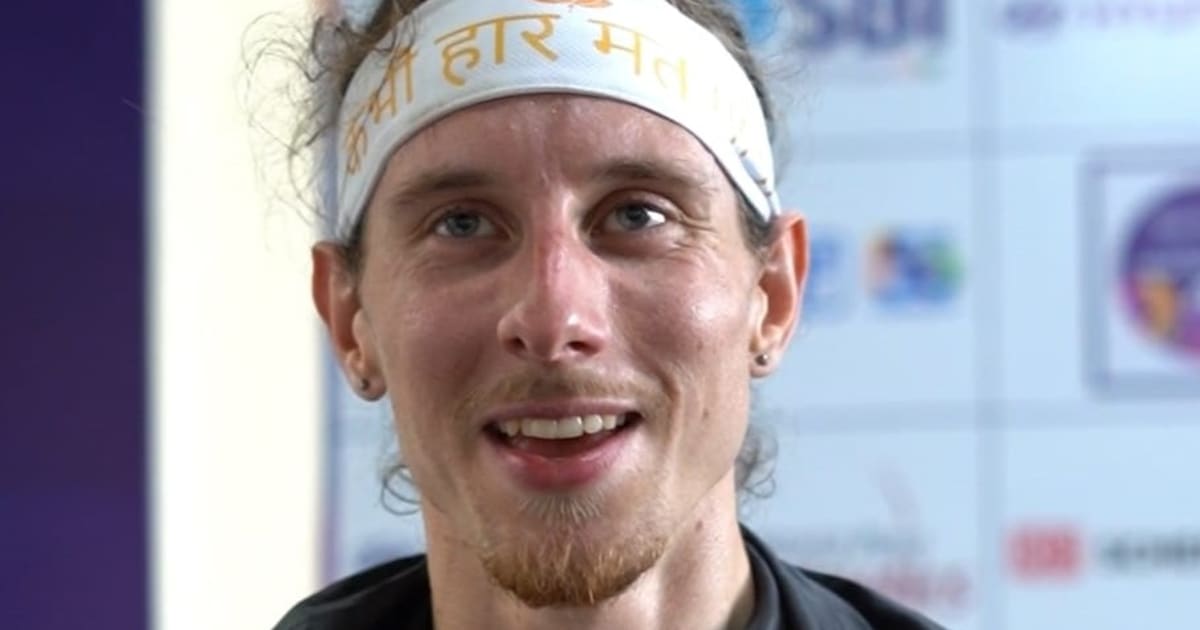German sprinter Max Maximilian delivered more than just a gold medal performance at the World Para Athletics Championships 2025 in New Delhi – he left behind a gesture of gratitude that touched hearts far beyond the track.
Competing in the men’s 400m T47 final at Jawaharlal Nehru Stadium, the 29-year-old para athlete crossed the line ahead of Japan’s Ryota Fukunaga and Botswana’s Bose Mokgwathi by just three-hundredths of a second.
However, what caught the eye even before the finish was the white headband wrapped around his forehead.
Inscribed in Hindi were the words Kabhi Haar Mat Mano, which translates to ‘never give up’. At the top, a lotus flower, which Maximilian said symbolised purity and resilience and reflected his own connection to Buddhism.
“This was my way of saying thank you to India,” Maximilian explained afterwards. “We athletes are welcomed here with great warmth. Wearing words in Hindi on my forehead was a way to show respect and gratitude. Wherever we compete, we try to express our feelings for the host country in this way.”
The idea, he said, came from his and German long jumper Markus Rehm’s coach, Olympic javelin medalist Steffi Nerius. Steffi had a tradition of wearing words in the host country’s language as a mark of courtesy. Maximilian embraced that tradition in Delhi – and made it his own.
The lotus symbol added another meaningful layer to the headband. For the 29-year-old para athlete, it represented resilience and grace – qualities that mirrored his own journey of recovery from injury.
“I know that in Buddhism, grace and resilience are important. It’s about moving forward unscathed through adversity. For me, it was the perfect symbol,” he said.
This wasn’t just for show – the message and symbols on the headband influenced his mindset. That mindset came alive in the final moments of the race.
With Fukunaga ahead, Maximilian seemed to be missing out on gold but the words on his forehead reminded him not to give up. In the last metre of the race, he gave it his all and won by just three hundredths of a second.
After the race, he admitted, “I had knee pain and couldn’t train properly for weeks. So this medal was completely unexpected. But the headband reminded me – never give up.”
Maximilian’s headband became a talking point after the race. He appeared joyful and emotional, because for him, the moment was more than just about the medal – it was about the connection an athlete feels when embracing the culture of a country that has cared for and hosted them so graciously.
In the end, he said, “In sports, respect matters just as much as performance. Tonight, I just wanted to show respect to India. And I’m happy that India gave me a gold medal in tough times – for that, I’ll always be grateful.”

